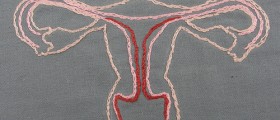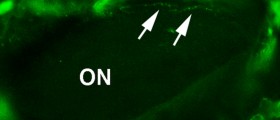
The metabolic imbalances that cause PCOS are not limited to the ovaries. PCOS is a disease that actually starts in the brain. Inside the brain, the hypothalamus, a "master control" gland, senses changes in estrogen levels that tell it that the lining of the uterus has regenerated. This generally happens during the first 14 days after a woman's period. When it gets the message that an egg would have a place to be implanted if it were fertilized by a sperm cell, it sends out pulses of a hormone called gonadotrophin releasing hormone, or GnRH. GnRH does not travel very far to do its work.
This hormone activates the pituitary gland to make follicle stimulating hormone (FSH) and luteinizing hormone (LH). FSH creates a follicle to carry the egg out of the uterus. This string-like shaft is dissolved by LH so the egg can leave the ovary through the Fallopian tubes. Both FSH and LH have many other actions in a woman's body, but this is their primary role in fertility. One of more parts of this process go wrong in PCOS. But fixing one or more parts of this process may restore fertility. Sometimes women with PCOS get pregnant just after losing weight. Losing just 5 to 10 pounds (2.5 to 5.5 kilos) may cause enough change in hormonal balance that permits ovulation. If sexual intercourse is timely properly, then a baby may be conceived.
Sometimes women need various hormonal therapies to help GnRH, FSH, LH, or all three do their job. And sometimes the egg has to be surgically released from the ovarian by a minimal-incision surgical operation commonly called ovarian drilling. And if none of these procedures works, the next intervention is in vitro fertilization. PCOS is a major impediment to fertility, but most women with PCOS eventually get pregnant. Progress, however, takes months or years. It is always best to try simple measures such as diet and exercise first.

















Your thoughts on this
Loading...